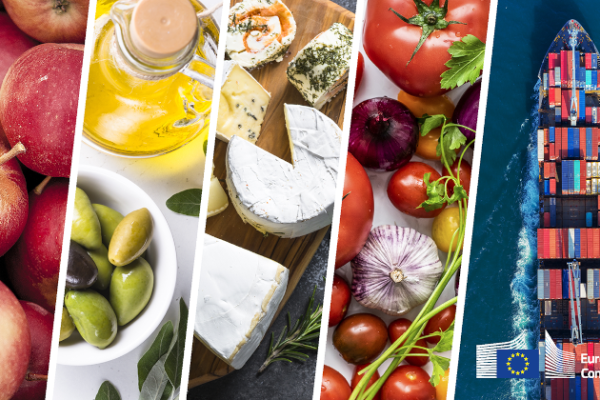Importing organic produce
For an imported product to be sold as organic, it must conform to equivalent standards to those applying to goods produced in the European Union. To ensure this, there are procedures that all importers have to follow when they wish to market a product as organic. These procedures depend on where the goods have originated.
For products which originated in
- Argentina
- Australia
- Canada
- Chile
- Costa Rica
- India
- Israel
- Japan
- Tunisia
- Republic of Korea
- New Zealand
- Switzerland
- United States of America
The EU concluded agreements on trade in organic products with Chile, Switzerland and the United Kingdom. Details on dates of the entry into force, products covered and control authorities and control bodies can be found in agreements on trade in organic products.
Inspection and certification of most organic products is carried out by the national authorities of the country of origin. This is because arrangements for the imports of organic products are in place with these countries as their standards and control measures have been assessed as equivalent to those in place in the EU. They are often referred to as ‘equivalent’ countries.
Concerning the import of organic products from the United Kingdom into the European Union, the Commission has published a notice to stakeholders, outlining the legal situation after the end of the transition period, certain relevant separation provisions of the Withdrawal Agreement, and the rules applicable in Northern Ireland after the end of the transition period.
- 8 DECEMBER 2020
For products which originated in any other country
In all other countries, inspection and certification is the responsibility of ‘control bodies or authorities’. These are independent bodies appointed by the Commission to ensure that organic producers in their area of responsibility follow standards and control measures equivalent to the EU ones.
If you wish to import a product from one of these countries and market it as organic within the EU, you must contact the appropriate national control body.
There may be additional controls or requirements on products imported from some non-EU countries.
Following an in-depth review of all of the notifications entered into the Organic Farming Information System (OFIS) over a period of one year, the European Commission and EU countries jointly decided that a number of products originating in a number of third countries should be subjected to additional controls from 1 January 2025 until 31 December 2025. This is to better ensure the integrity of organic production. The additional controls involve certain undertakings by EU countries and certain obligations for control bodies recognised in third countries under the supervision of the Commission. The Directorate-General for Agriculture and Rural Development’s “Working document on additional official controls on products originating from certain third countries” sets out these undertakings by EU countries in terms of additional official controls. The letter addressed to control bodies in third countries under the supervision of the Commission sets out these obligations in terms of additional control measures.
- 17 JANUARY 2025
- 17 JANUARY 2025
Additional advice is available for products imported from the USA.
- 14 FEBRUARY 2012
Certification
All organic products imported into the EU must have the appropriate electronic certificate of inspection (e-COI). These are administered through the Trade Control and Expert System (TRACES).
- Equivalent countries: certificates are issued by the control bodies designated by the countries' national authorities.
- All other countries: the certificates are issued by the control bodies designated by the EU.
If you do not have an electronic certificate of inspection, your products will not be released from their port of arrival in the EU.
- 10 DECEMBER 2018
- български(290.66 KB - PDF)
- español(63.47 KB - PDF)
- čeština(168.2 KB - PDF)
- dansk(58.43 KB - PDF)
- Deutsch(59.96 KB - PDF)
- eesti(57.94 KB - PDF)
- ελληνικά(288.21 KB - PDF)
- français(60.12 KB - PDF)
- italiano(60.33 KB - PDF)
- latviešu(269.71 KB - PDF)
- lietuvių(248.7 KB - PDF)
- magyar(214.19 KB - PDF)
- Malti(213.27 KB - PDF)
- Nederlands(49.55 KB - PDF)
- polski(258.9 KB - PDF)
- português(51.6 KB - PDF)
- română(241.77 KB - PDF)
- slovenčina(245.31 KB - PDF)
- slovenščina(210.17 KB - PDF)
- suomi(57.36 KB - PDF)
- svenska(68.06 KB - PDF)
Export of organic products to non-EU countries
The export of organic products from the European Union to non-EU countries is subject to the destination country’s specific requirements, the details of which can be obtained from the competent authorities of the relevant country.
Related information
Information for third country control bodies
Organisations that assess and inspect organic producers or distributors from non-EU countries can apply to be recognised as control bodies by the EU. This allows them to certify that products intended for import into the EU are produced organically.
Related information
Related links
The European Commission has adopted several regulations on the production, distribution and marketing of organic goods.


